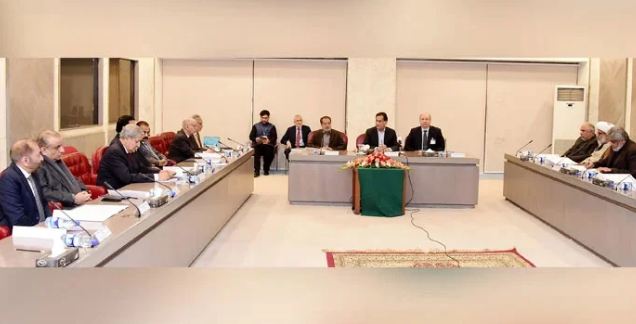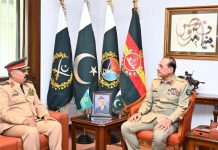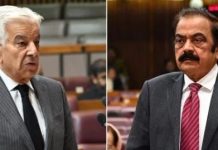By Web Desk
December 30, 2024

ISLAMABAD: DEC 30 /DNA/ -In a bid to defuse the political tensions in the country, National Assembly Speaker Sardar Ayaz Sadiq has formally convened an in-camera meeting of committees representing the government and the embattled PTI on January 2, 2025.
According to a statement issued by the NA speaker, the crucial meeting between the ruling alliance and Imran Khan-founded party will be held at parliament house on Thursday. The key huddle will begin at 11am, it added.
The upcoming meeting is a continuation of the December 23 huddle.
The PTI will present its demands in writing before the government’s negotiation committee at the Jan 2 meeting as the first round of parleys ended in a conducive environment.
The PTI’s team, following a thorough consultation with the party leadership, has decided to present just two demands before the government in the upcoming meeting, said well-placed sources.
The former ruling party’s demands include formation of a judicial commission to probe May 9, 2023 violent incidents and November 26 crackdown on PTI workers in Islamabad, and release all political prisoners, the sources added.
PTI leader and former NA speaker Asad Qaiser, however, said that their demands were clear. He demanded a commission to investigation May 9 and November 26 events and release of the PTI founder, who has been behind bars since August last year after he was sentenced in Toshakhana case-I — one of the dozens cases registered against the former premier since his ouster from power in April 2022.
All members of the PTI’s negotiation committee would attend the next round of talks, he added.
In the previous meeting, the PTI was represented by former NA Speaker Asad Qaiser, Sunni Ittehad Council (SIC) Chairman Sahibzada Hamid Raza, and Majlis Wahdat-e-Muslimeen Allama Raja Nasir Abbas.
Questions were raised over the sincerity of the former ruling party in the negotiation process as other members of the Khan-founded party, including Leader of Opposition in the National Assembly Omar Ayub, PTI General Secretary Salman Akram Raja, Khyber Pakhtunkhwa Chief Minister Ali Amin Khan Gandapur, senior PTI leader Hamid Khan skipped the key huddle.
From the government’s side, a nine-member committee comprising Deputy Prime Minister and Foreign Minister Ishaq Dar, PM’s political aide Rana Sanaullah, Senator Irfan Siddiqui, PPP’s Raja Parvez Ashraf, Naveed Qamar, Istehkam-e-Pakistan Party (IPP) leader Aleem Khan, Pakistan Muslim League-Quaid (PML-Q) leader and Religious Affairs Minister Chaudhry Salik Hussain, Balochistan Awami Party’s Sardar Khalid Magsi and Muttahida Qaumi Movement-Pakistan (MQM-P) leader Dr Khalid Maqbool Siddiqui —will attend the second round of talks with the PTI.
The long-anticipated talks between the rival parties began on December 23 during which it was decided that the former ruling party would present its demands in writing during the next round of talks.
The much-hyped meeting was held with the NA speaker in the chair during which both sides resolved to continue dialogue process.
Addressing a presser following the meeting, the NA speaker said that the PTI would present a charter of their demands in the next session.
Sadiq had thanked the government’s leadership and senior leaders of the opposition for holding the talks in a positive environment.
“We discussed things about past and present and I hope that if we work together for the country’s betterment, it will strengthen the political stability, strengthen democracy and help in dealing with challenges faced by Pakistan,” he had added.
We want to bring betterment in Pakistan and end the political polarisation in and outside the parliament.”

















